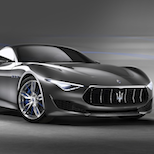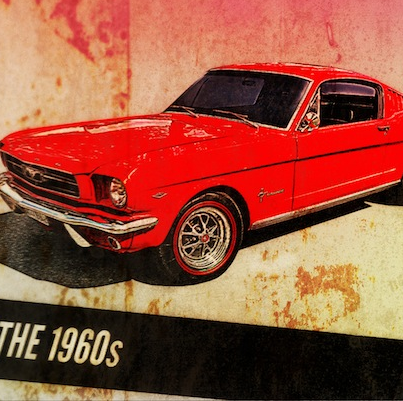MINI: Strength In Numbers
06.26.2012
TECHNOLOGY
A festival in France requires its fair share of native sounds, which MINI United delivered in abundance, from the house music of DJ Martin Solveig to folk stylings of singer Charlie Winston. Strangely enough, the latter is actually English, finding success in France in recent years as a throwback to bohemian artists. The well-traveled singer sat down with Life +Times backstage at MINI United to talk world music and give an European perspective on the power of hip-hop.
Life+Times: Have you performed in this part of France often?
Charlie Winston: Yeah, a fair amount.
L+T: Despite being English, you’ve managed to make France your home.
CW: Yeah. The French seem to have taken me under their wing, which is great. I have no complaints about that at all. It’s fantastic. One thing the French do really well is festivals. They’ve got a lot festivals. It’s a good market for festivals and it’s a lot of fun.
L+T: Why do you think the French have embraced you so much?
CW: I don’t know. It’s a combination of who I am, my personality and the sort of spirit that I have in my music and my way of life, which is essentially pretty bohemian—I haven’t had a home for a year now, I’ve just been living through suitcases. My last album was called Hobo and there’s something in the French psyche, which is very, very romantic. We all associate France with romance, especially Paris. And it’s their sort of bit of pride. And so, there’s this romantic side, and there’s this bohemian sort of mentality they have, and I think, in what I do, I’m not really too precious about the things I own or material values or anything like that. I’m about living and they really cling onto that. Also, because of the way the world is going—driven towards consumerism—I think the French, deep down, feel like they’re losing a part of themselves the more they get into that. It’s a cultural thing. I kind of came along as sort of a happy reminder for them.
But I think also it’s a little bit of flattery in a sense, that I left my own country, which is England—which is like a big exporter of music—to come here first, learn the language, and I released [my music] here before I released it in England. And I think for the French, that’s quite flattering for them, that an English man should come to France first.
L+T: On the daily, what do you listen to?
CW: It can vary, from Indian raga to Nigerian highlife. Contemporary jazz. Swing. Classical. Pop music. I listen to pop music and I try to do it in doses because, the thing is, I don’t want to be bringing to my audience what they already listen to. I see my job as, like, an explorer. I go off to other lands and take stuff and then bring it back and present it to them in a way that they can understand. And that’s what I feel my job is, personally, what my modus operandi is. Mix things into things that people don’t usually have. Like Missy Elliot did with “Get Ur Freak On”—you’ve got those Indian influences going on and that’s really exciting and no one really knows why except for musicians, because you can see the ingredients that she’s replacing. So, yeah, I listen to pop music. Old bands from the ‘60s, ‘70s. A lot of hip-hop. I used to breakdance when I was a kid. So I listened to a lot of Run-DMC, Grandmaster Flash, A Tribe Called Quest, and Jungle Brothers, and all that kind of stuff. And that’s something I mixed into this recent album—I wanted to mix in my influences of punk rock and hip-hop.
One of my favorite duets is Aerosmith and Run-DMC’s “Walk This Way.” It was really, basically, saying, “We’re all coming from the same spirit, the same energy. We just got a different way of giving the message.” And that’s what I think music should be really. It should be that uniting of everyone. And that’s what hip-hop was, essentially, when hip-hop started. Hip-hop meant the same as salsa, mixing everything up. It was like a homage to everything. Now, hip-hop has developed and changed into something completely different. But I think, essentially, it’s still taking other influences.
L+T: How’s playing a festival like this different than playing a traditional one?
CW: Firstly, the energy is different purely based on the fact that not all of the people that have come to the festival are gonna be my audience. I have to remember the fact that I’m preaching to some of the unconverted. So, onstage when I’m at a festival, it’s just about giving a lot of energy, making it rock n’ roll, and sort of making it large, as well. So, it’s cool. And also, the other thing is you don’t get the luxury of a two-hour soundcheck before you go onstage. It’s really like, “You’re on. Go!” It’s kind of like live TV.
But the energy of the people—they’ve been out in the sun, drinking all day. They just wanna have fun. So you gotta make it fun, basically.
I feel like I’m always onstage. I don’t get nervous before going onstage or anything like that and now in France, especially, I’ve done a lot of big festivals like this. This one kind of seems middle—a “mini” festival. I wouldn’t say that—that would be a bit arrogant if I said 20,000 people was a “mini” festival, but it is a MINI festival (laughs). Technically.
L+T: So at this point, you’re more comfortable onstage than in the studio, right?
CW: No, actually no. It’s just a different practice. When I finished touring my first album, I was just desperate to get into a studio or have some sort of quiet time, because in the studio, you can go into your own world more easily. You go deep. You can be selfish and just go inward and discover your sort of world. Doing gigs is about coming out of my world and giving it to people. It’s like this: the way I see what I do is like having a garden, basically. You spend your time on your own gardening, watering, and clipping the plants, so it looks really beautiful. And then you open the door, and a whole load of people come in and look at it and you’re just busy socializing and making sure everyone’s got drinks and stuff like that. But then at some point, you’ve got to go, “Alright! Everyone out now! I need to start gardening again. I need some new flowers again. They’re all looking a bit shabby.”





